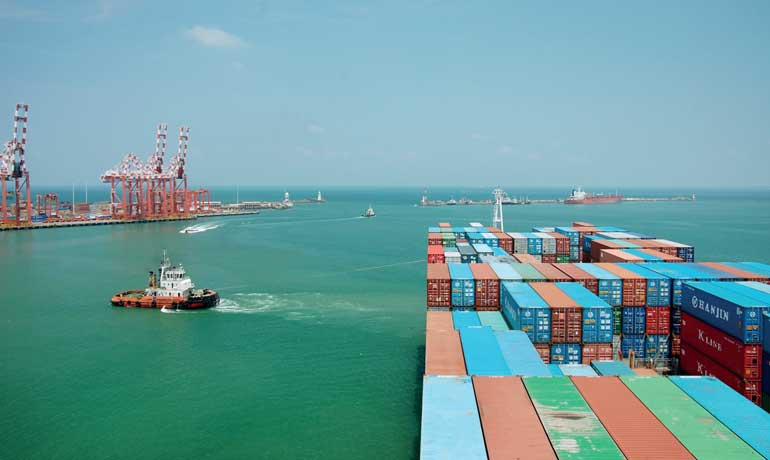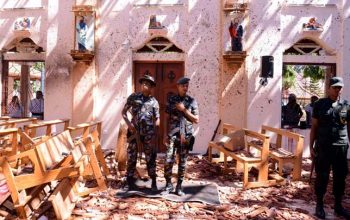By Sarath Wijesinghe
It appears that the government is determined to proceed with the ETCA – Economic and Technology Cooperation between India and Sri Lanka, which consolidates all previous failed agreements on trade and industry. The professional national front (PNF) apparently out of desperation, has appealed to the Indian High Commissioner to prevent proceeding with negotiations until a Sri Lankan Trade Policy is formed as demanded by the professionals.
Ironically, the Indian High Commissioner is a strong promoter of ETCA on behalf of the Indian Government that is very keen on the implementation of the agreement for obvious reasons by negotiating with teams moving between the two countries for some time. It is making public pronouncements on the positive aspects of the FTA benefiting both countries with ‘WIN WIN’ situations on improving market access through FTA proposing/suggesting a give and take process.
It is learnt that the powerful 19- member delegation headed by K. T. Weerasinghe on the eighth round with positive notes and fine tuning, has returned from India after successful deliberations to be continued in Sri Lanka. Statements made by Dr. Sally-(successor of Dr. Saman Kelagama, a leading proponent and activist for ETCA) from a Singapore University College- advisor to the State and Chairman of the Board of Directors of the Institution of Policy Studies appointed by the President says on 26 February 2018 in the Mirror that ‘Sinhala Buddhists who consume Sinhala Media resist the reform agenda for free economy due to protectionism and the only option to develop the country is free liberalized economy with freedom to foreigners to purchase properties and assets freely for development.’
Controversial
This is a controversial statement as a leading member of the group of economists assisting government line Ministers and Cabinet on the implementation of the FTA between Sri Lanka and India and other FTA’s with other countries and international organizations.
This casts doubts on Sri Lankan professionals whether the policies applied to Singapore which is a small strip of land with no resources, but a world business leader could be applied to Sri Lanka, a country with diverse atmospheres, resources, ideally suited for agriculture, rich seabed and excellent harbours right round the Island, full of greenery, plenty of water, natural beauty etc which are not found in Singapore.
Therefore seeking advice for Sri Lanka should be carefully monitored on/for a Sri Lankan way on the basis of economy and developments to carry on foreign and trade policies with the participation of local patriotic academic and professionals careful assisted by foreign experts. Incidentally, the Sinhala reading citizen is politically advanced and takes sound political decisions from the time universal franchise was introduced.
Fearing ETCA
India is a world and regional power aspiring to be a member of the Security Council engaged in a cold war with China for supremacy in economy and the Indian ocean, with a population of 1.3 billion and unemployment equitant to the Sri Lankan population of 21 .3 million with a giant economy compared to the ailing economy, debt and an unstable political situation in Sri Lanka depending on the outside world for food and most consumer items. Sri Lanka has been a poor negotiator at international level, failing in many, starting from the 1815 Convention that surrendered the nation to the British crown, the Indo-Sri Lanka Accord forced on Sri Lanka with the establishment of Provincial Councils which are white elephants today, CEPA in 2003 unfavourable to us and now dormant, to the Geneva Resolution against Sri Lanka as a co-sponsor as a result of week strategies and negotiating skills for which we are paying a heavy price today.
Fortunately in the 2003 CEPA, we did not open the service sectors opening the door for an unemployed 22 million Indian citizens where there have been 5 million applications for 335 vacancies! India is a giant economy producing cars, heavy machineries, drugs, agriculture and thousands of consumer items through industries and as household products can flood the market against our selected products for export in the dwindling and ailing export regime.
We made the biggest blunder by selling a lucrative part of Oil Corporation to an Indian Company when she is aiming at our oil tanks situated in the most strategic part of the Indian Ocean in a ferocious competition with China now with a strong foothold via ‘Magama’ Port now in full control by China for next two centuries. Therefore it is important for Sri Lanka to be cautious in dealing with international trade agreements when we are less equipped and incompetent.
Trade Policy
Trade is a major sector in the political and economic regimes of a nation especially in dealing with local and outside States, international organizations and the private sector which requires regulatory mechanisms and strategies with fast changing the complicated trade network worldwide.
Historically, Sri Lanka conducted trade with states, and the private sector through the traders who voyaged via Sri Lanka through the famous ‘Seda Mawatha’ sea route – the famous traditional route by exchanging our goods with the outside world. After colonization there was a transformation of trade in line with the British Colonial fathers.
Sri Lanka dealt with trade with the rest of the world following the Births Model with no proper strategy and changes or policy on trade to date. Successive governments adopt different policies based on their political affiliations and agendas with lack of a clear and comprehensive trade policy or strategy.
Decisions taken are not scientific and are ad hoc, based on personal and political agendas. Thereby the country was at the receiving end and economically blind. Sri Lanka made blunder after blunder in international and trade negotiations with lack of vision or strategy when small nations such as Singapore and Hong Kong have become successful as negotiators in trade and economy.
Therefore it is high time Sri Lanka takes time in the preparation of a full and comprehensive Trade policy to meet the needs and challenges on political and economic fronts.
Trade Policy
Trade Policy of a country would be in line with the foreign policy which is how a nation acts and reacts with the rest of the world in terms of foreign relations. Similarly Trade Policy is how the State acts and reacts with other States, international organizations and the world business community in terms of the trade and business in dealing with the international community in the business/trade regime, for which there should be a clear and comprehensive policy to win the confidence of the world.
Trade/commerce process/procedure was conducted based on the policies of respective governments from independence with no consistency like in other countries such as USA, UK, India or Republic of Russia where policies were transparent and consistent. United National Party policies until the SLFP regimes in 1956, were the continuation of the procedure left by the British, which was transformed to a more nationalist outlook by the SLFP governments until again UNP took over administration thereby successive governments conducted trade in the most inconstant manner until today.
Currently the UNP-SLFP Coalition Government it is not clear whether the policy is open economy of UNP or the closed, more Sri Lanka inclined policies of SLFP, or a mixture of both which is a messy pickle of many policies with the partner parties TNA and JVP and other small parties. After three years of rule, the President has taken over the economy of the State through the high powered National Economic Council to manage the Economy still without a clear and comprehensive trade or a foreign policy as the foreign policy is also not properly managed by the President who has allowed the Prime Minister and Foreign Minister to take independent positions, giving different signals in the international arena.
Even the ETCA ownership is in doubt. It is reported that the documents are prepared by experts, foreign and local academics and economics at various ministries headed by the Prime Minister the architect and live wire of the operation planning to enter into various trade agreements with a number of countries and international organizations.
Way forward
It is illegal, immoral, unconstitutional and unsafe to enter into ETCA arbitrarily in the circumstances before ascertaining whether ETCA is necessary in the best interest of the nation when there cannot be a – U turn once set up with asymmetrical world/regional power with vested interests so close to each other geographically.
CEPA is consolidated and India wants to improve on it whether we like or not. Proposed formulation of the trade policy is to be discussed and implemented through Parliament with advice and assistance from competent professionals acting on Sri Lanka friendly Trade Policies.
Courtesy: Ceylon Today





